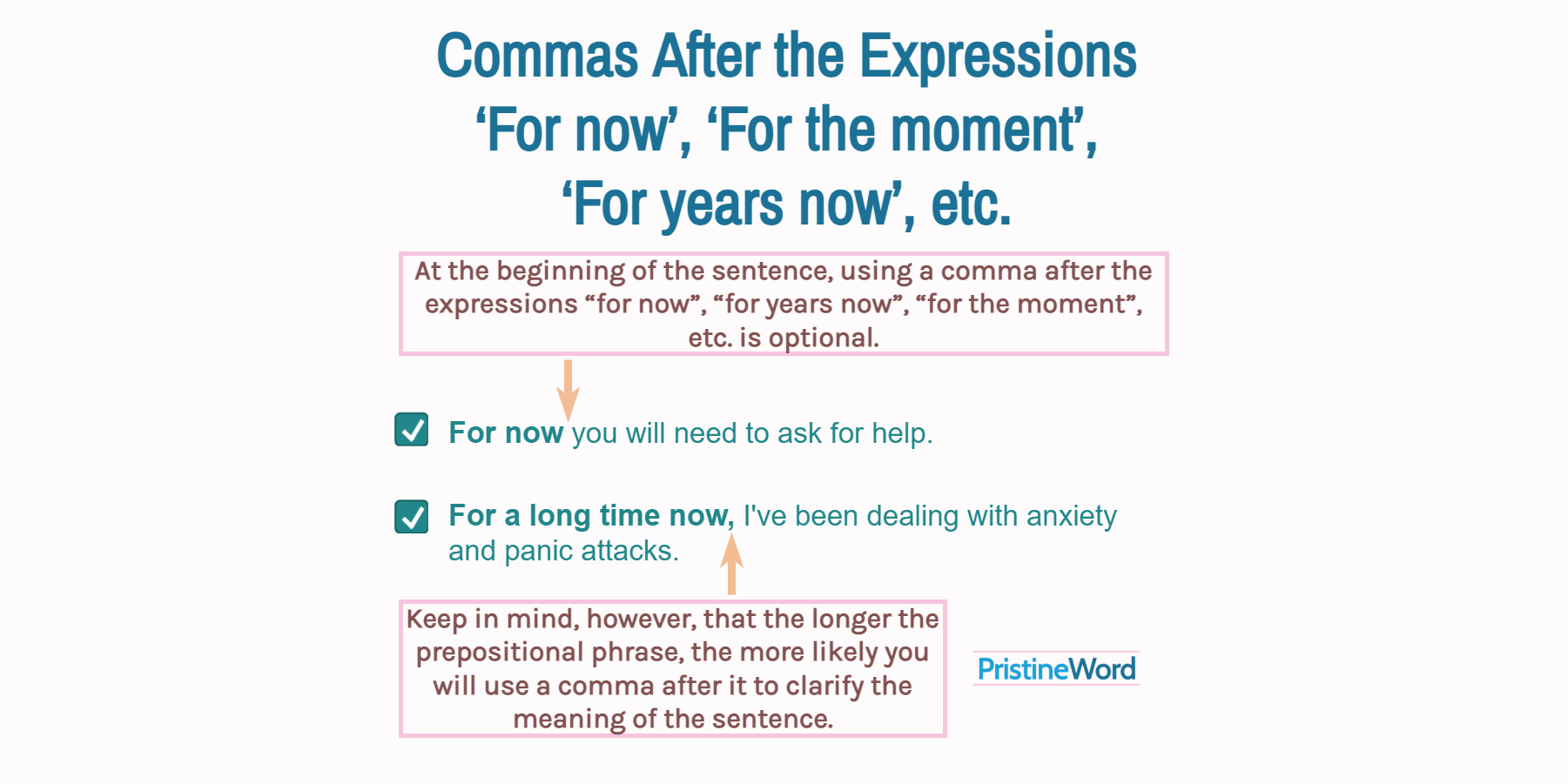At the beginning of a sentence, using a comma after the expressions “for now”, “for years now”, “for the moment”, etc. is optional.
At the beginning of a sentence, using a comma after the expressions “for now”, “for years now”, “for the moment”, etc. is optional.
For now you will need to ask for help.
For the moment, the strong demand for goods is not driving consumer prices higher.
Keep in mind, however, that the longer the prepositional phrase, the more likely you will use a comma after it to clarify the meaning of the sentence.
For a long time now, I've been dealing with anxiety and panic attacks.
Contents
1. Commas When Starting a Sentence With ‘For now’ or ‘For the moment’
When using short prepositional phrases, such as “for now” or “for the moment”, to introduce a statement, commas are generally unnecessary.
For now you’ll have to wait here.
For the moment we are offering full menu.
But you can optionally use it to signal a pause or add emphasis at the beginning of a sentence.
For now, volatility in the gold market has eased.
For the moment, we remain concerned about the situation of refugees.
2. Using ‘For now’ or ‘For the moment’ in the Middle or at the End of a Sentence
In the middle or at the end of a sentence, we do not typically use a comma to separate an adverbial phrase (like "for now" or "for the moment") from the verb it describes.
That’s all we know for now.
Early intervention to fight inflation does not exist for the moment.
But you may need to use a comma before or after these expressions to signal a strong interruption, add nonessential information, use a series of coordinate phrases, etc.
Olivia decided that, for the moment, she’d keep quiet.
Our guest is out, for now, exploring the area and searching for places of interest.
Note that “for now” adds nonessential information in the second sentence above. Without “exploring the area and searching for...”, the phrase “for now” would become essential. In such a situation, no comma is required.
Our guest is out for now.
With the following adverbial prepositional phrases, follow the same comma policy:
3. Commas After ‘For some time now’, ‘For a while now’, ‘For years now’, ‘For a long time now’, etc.
Follow a similar comma strategy when determining whether to use commas after other related prepositional phrases, such as “for some time now”, “for a while now”, “for years now”, “for a long time now”, or “for many years now”.
Commas in the middle or at the end of a sentence are frequently unnecessary with these expressions.
We have been planning this for some time now.
At the start of a sentence, you can optionally use a comma to separate the introductory phrase from the main clause.
For years now I’ve been studying Spanish.
For a while now, he’s been in decline.
Be aware that the longer the adverbial phrase, the more likely you will use a comma after it.
For a long time now, I’ve been teaching English in Europe.
For many years now, I’ve been studying molecular biology and genetics.

